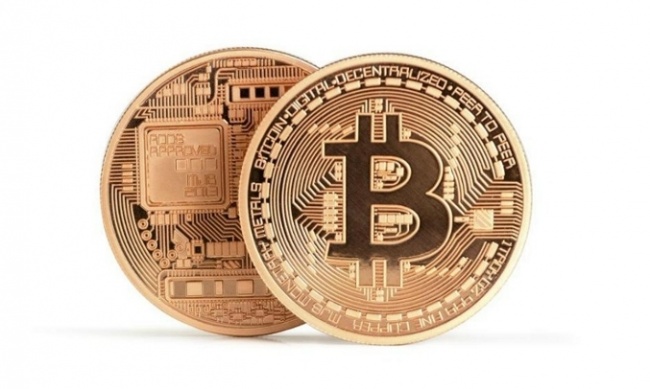If you’ve heard the term "blockchain" recently, chances are it’s in relation to Bitcoin, the digital currency whose explosion in value from pennies to recent highs touching $20,000 per unit (before tumbling) is driving massive speculation and hype. Consequently, reactions tend to be polarized between wild euphoria and extreme skepticism. It’s also lead to a lot of confusion that makes it difficult to identify the enormous benefits of blockchain beyond financial speculation. One of the areas it may benefit the biggest? The collectibles industry.
Chaining Bits and Atoms. Blockchain is the technology that underlies crypto-currencies. It guarantees that every unit is unique and can have one and only one owner at a time. It does this by recording every transaction in a public ledger that is distributed across multiple computers around the world. To be accepted as an authentic transaction, all the ledgers have to agree on the validity of the buyer and seller. Interested parties can check the ledger to confirm any item (such as a coin or token) actually is what it claims to be and was acquired by the seller in a legitimate prior transaction, all the way back to the point of origin.
Blockchain is based on math so computer-intensive that it costs more in electricity, equipment and processing power to break the algorithm than the underlying asset is worth. Even when Bitcoin hit $19,000 at its peak last fall, it still made sense to buy it if you wanted some, rather than try to fool the blockchain network or "mine" your own unless you already owned a server farm.
So why did Bitcoin go from being a nerdy novelty to the hottest commodity on earth, despite not being anything at all? Simple economics. When there is a lot of demand and not much supply of something, the price goes up. Because Bitcoin is so hard to create and nearly impossible to counterfeit, there’s a finite supply. People start to hear about it and want in, but it takes more and more real dollars to get sellers interested in parting with their coin. Prices skyrocket, and eventually, people want in because prices are going up. All discussion of underlying value goes out the window.
Does that remind you of anything, fellow collectors?
Scarcity is the key to collectability. Consider one of the distinctive features of digital media: the ability to make a copy that is identical to the original. As the music and movie industry found out the hard way, once you bring a sound or video recording into the digital realm, it can be "shared" infinitely at near-zero marginal cost. The same is true for digital comics and cards.
That not only makes it hard to sell stuff that enterprising consumers can find for "free" online, it makes it nearly impossible to establish any kind of scarcity around digital media that would cause collectors to seek out unique or unusual items, because supply can arbitrarily increase to meet any level of demand and there’s no way to tell an "authorized version" from a digital copy.
Blockchain offers a solution for at least part of that problem. Let’s say a publisher releases a 1:100 variant edition. Anyone with the technology to read that comic or card has the ability to make a reasonably serviceable copy of it, even if it’s just by taking screen shots. But if the publisher issued only a limited number of tokens on the blockchain associated with authentic digital editions, it would be easy to tell the real ones from the fake ones, particularly in a marketplace.
That makes the token itself the store of value, separate from the underlying content. Collectors who want the prestige of having a truly rare item, or speculators betting that scarce items will sell for more down the line, can use their tokens to prove actual ownership. People who just want the story can buy standard editions or even variants without paying the collectors’ premium.
Demand and Supply (chain). While the world of tokens, decentralized ledgers and cryptocurrencies can sometimes sound like the fever-dreams of libertarian fanatics, the real-world implementation of blockchain for supply chain management is inches away from prime time. Big IT companies like HP and IBM are promoting blockchain as a way to secure physical inventory against counterfeiting by printing hashes or watermarks on products, packaging and shipping containers, then using the public ledger to track every unique item across a global supply chain to its final destination.
This not only guarantees authenticity, it also makes it possible to assign accountability for loss or damage, because you can see where any individual item drops out of the chain of custody and who is associated with it at that point. Can anyone think of any scenarios in geek culture that might benefit from this?
IP and Licensing. But wait, there’s more. Intellectual property can also be registered through blockchain, with the IP owner able to sell tokens to authorized users and licensors. This has a few obvious uses and a couple of really tricky ones.
Among the most interesting is the possibility of fractional ownership in collaborative projects. Let’s say you’re a creator who came up with a fiendish, Death-loving cosmic overlord way back in the 1970s, and that character ends up turning up in a hit movie full of other IP. Assuming you wanted to assert legal rights over your creation, figuring out a mutually equitable financial arrangement would be a nightmare. How much of the financial success of the film and its associated licensed merchandise sales is due to your IP versus the creative contributions of everyone else who participated in the project? And how could you be sure to get a fair accounting from the studio and other licensors?
Using a blockchain-based token system, that becomes a bit easier and more transparent. You can track sales of merchandise based on owned IP instantly on the public ledger, as they happen, whether the licensed item includes 50 pieces of separately-owned IP or just one. I am aware of a couple of comics, entertainment and nerd-culture adjacent businesses looking into this right now. Stay tuned.
Chain of fools? The volume of hype surrounding Bitcoin and other cryptocurrencies has already triggered a backlash, especially among economists who are skeptical, to say the least, over the mushrooming number of "initial coin offerings." At some point, a bubble will burst, lots of people will lose money, and everyone will think the whole thing was a scam from day one.
Don’t be fooled. Blockchain is real. And while the rest of the world is chasing phantasms in the world of finance, the real benefits of the technology might just be collecting value in the world of fandom and entertainment.
The opinions expressed in this column are solely those of the writer, and do not necessarily reflect the views of the editorial staff of ICv2.com.
Rob Salkowitz (@robsalk) is the author of Comic-Con and the Business of Pop Culture.

By Rob Salkowitz
Posted by Rob Salkowitz on May 14, 2018 @ 7:43 pm CT



